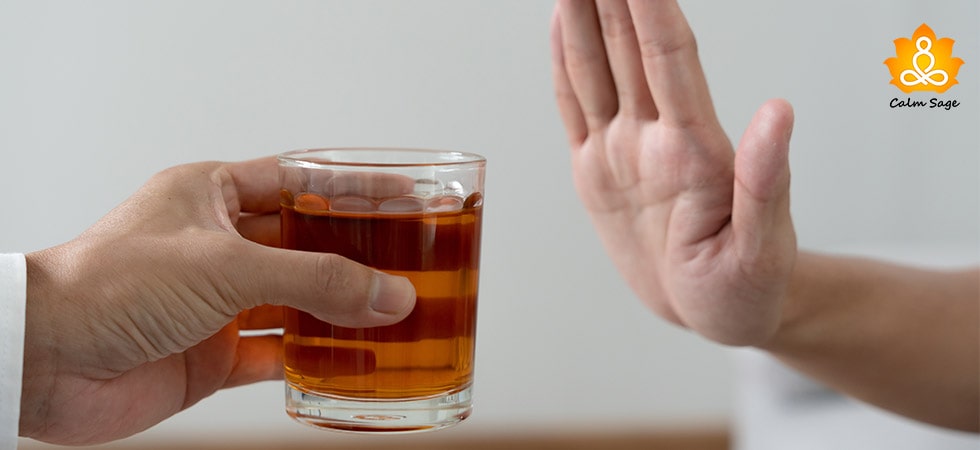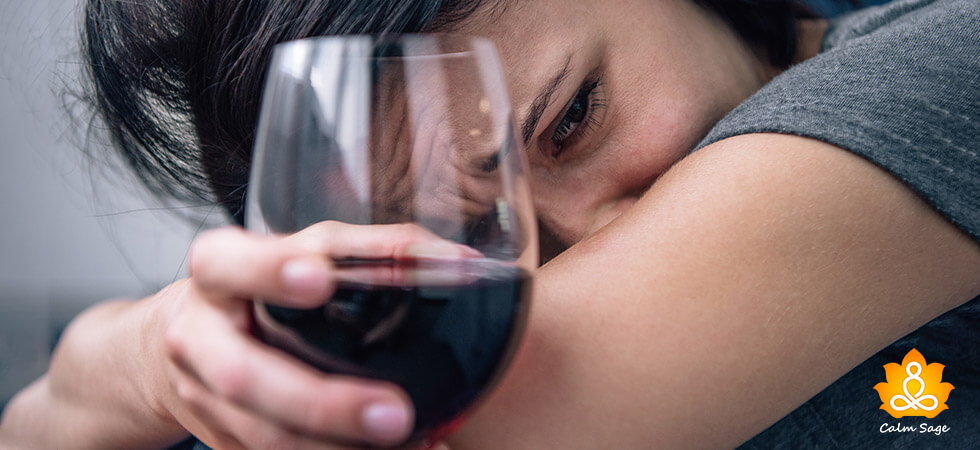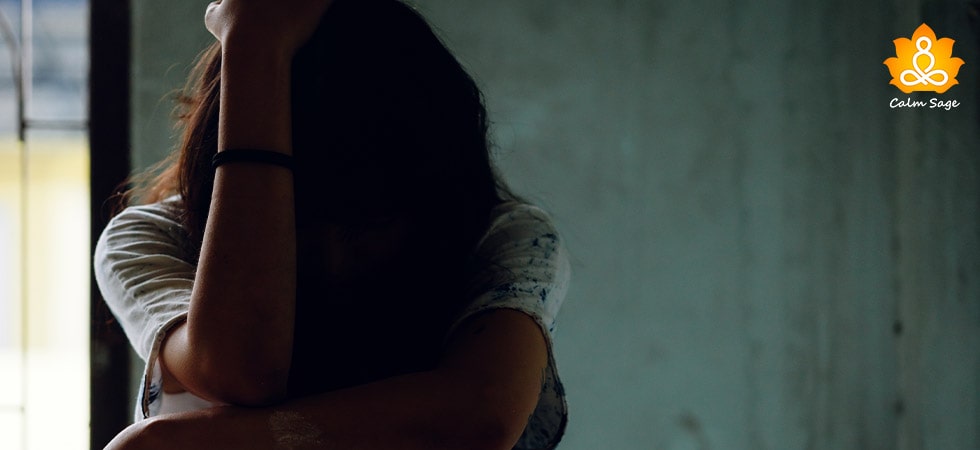Am I Addicted To Caffeine? | All You Need To Know About Caffeine Addiction
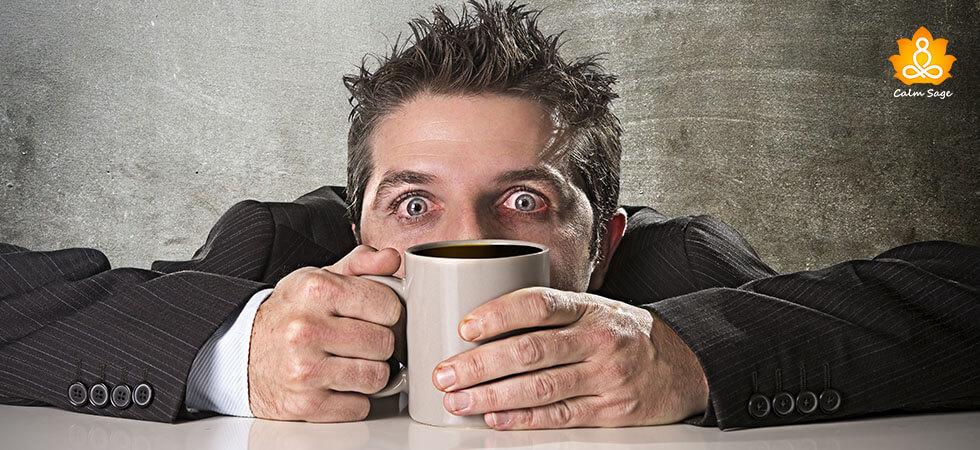
What’s the first thing you do when you wake up in the morning? Brush your teeth? Check your phone? Search for your caffeine fix?
Most people stumble out of bed each morning and look for their caffeine fix – whether it be a cup of tea or a regular cup of coffee. For many, their cup of coffee is a habit or more likely a ritual that marks the start of the rest of their day.
Did you know that almost 75-80% of people, worldwide, drink caffeinated drinks daily? And did you know that coffee is one of the most common and most popular sources of caffeine followed closely by soft drinks and tea?
Now, if you can’t imagine starting your day without a cup of coffee or your daily dose of caffeine, there is a slight chance that you may be addicted to caffeine. Note that, too much caffeine can lead you to develop caffeine dependence.
In this blog, I’ll be helping you understand what caffeine addiction is, its symptoms, the side effects of caffeine, and how you can cope with this addiction.
Let’s begin by understanding what caffeine addiction is.
What Is Caffeine Addiction?
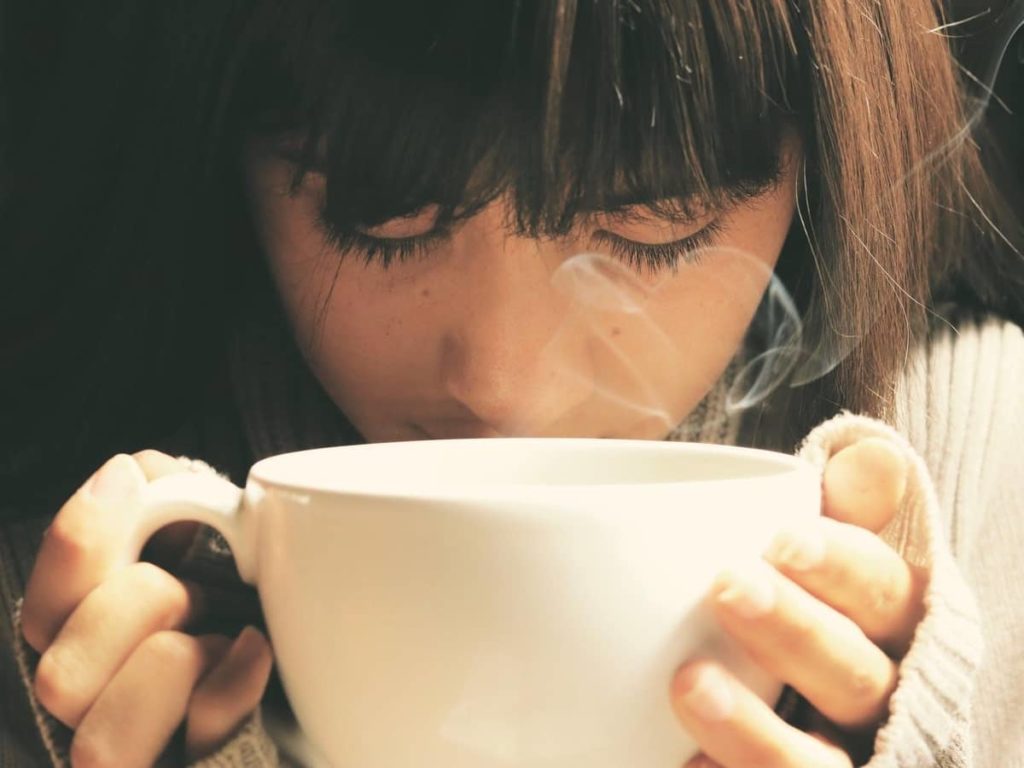
One of the widely consumed drugs, worldwide, caffeine acts as a stimulant to our central nervous system. Caffeine helps in producing energizers and activates alertness in our brain. In the United States, coffee and soft drinks are top sources of caffeine while in Africa and Asia, caffeine can be found mostly in tea.
In many studies, it was found that caffeine helps improve mood, relieve headaches, reduce risks of major medical concerns such as stroke and Alzheimer’s. However, too much caffeine can have adverse effects too.
When your consumption of caffeine begins to endanger your health, mentally and physically, that’s when it becomes concerning. While caffeine addiction is not officially in the DSM-5, caffeine intoxication, caffeine withdrawal, caffeine-related anxiety, and caffeine-related sleep disorders are all recognized officially in the DSM-5.
Effects Of Caffeine On Our Health

Caffeine has various benefits as well as drawbacks. Caffeine can cause an increase in blood pressure, heart rate, and can also increase the risk of osteoporosis. This popular drug can also cause disruptions to your sleep pattern which can lead to you developing sleep deprivation or lethargy during the day.
Some people may also be sensitive to caffeine and caffeine intake can make them more dependent on the drug than others. Other effects of caffeine on our health can be:
- Anxiety
- Depression
- Stomach aches
- Acidity
- Muscle spasms
- Heart problems
- Body aches
- Irritability
- Nervousness
- Trouble in concentrating
- Trouble in thought processing
Similar to other drugs, caffeine can also become addictive if its intake is not controlled or monitored early on.
What Are The Symptoms Of Caffeine Addiction?
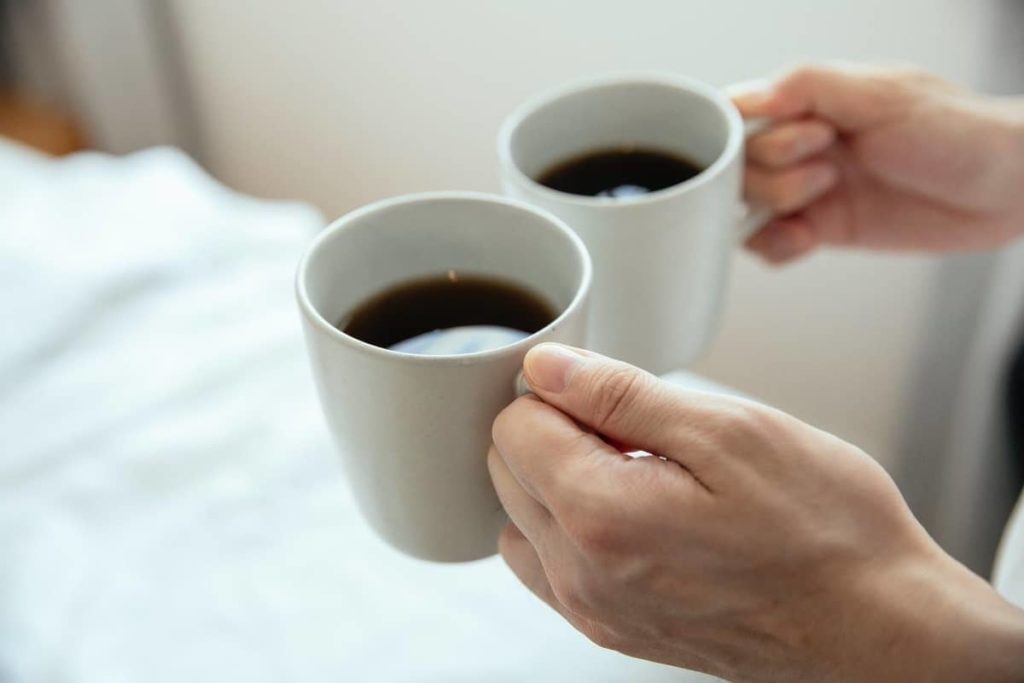
Too much caffeine can directly affect our nervous system. Caffeine addiction symptoms can be:
- Dizziness
- Shaking and trembling
- Headaches
- High blood pressure
- Nervousness
- Increased heart rate
- Sleep problems
- Fatigue
Caffeine addiction can also be associated with work addiction. People may use caffeine substances to increase their productivity. Similar to other addictive substances, the pleasurable side effects of caffeine can hide other health concerns. Fatigue and depression are two examples. People may also use caffeinated products to compensate for other disorders.
The Symptoms Of Caffeine Withdrawal
Just like other addictive substances, sudden removal or intake of caffeine can also cause withdrawal. Caffeine withdrawal can range from mild to severe and some common symptoms of caffeine withdrawal can be:
- Tiredness
- Low alertness
- Slow reaction time
- Low memory
- Poor performance
- Nausea and vomiting
- Mood swings
Caffeine And Other Health Disorders
As I said before, caffeine acts as a stimulant to our nervous system and addiction to caffeine can cause symptoms that can be easily confused with other health disorders.
For instance, caffeine intoxication can cause symptoms such as panic attacks, racing thoughts, increased heart rate, over-worry, etc. All common symptoms of anxiety and related disorders.
Other health disorders that can be associated with caffeine addiction, caffeine dependence, and caffeine withdrawal can be:
- Mania
- Panic attacks
- Generalized anxiety disorder
- Sleep disorders
- Migraine
- Sinus problems
- Caffeine-induced anxiety disorders
- Caffeine-induced sleep disorders
What To Do Next?

If you think you’re addicted to caffeine or if any of the above caffeine addiction symptoms resonate with you, then here are some steps to help you control your caffeine dependence:
1. Evaluate Your Intake
Assess how much caffeine you’re consuming regularly. Coffee, tea, soda beverages all contain caffeine. Even chocolate has caffeine. Make a note of how much caffeine you’re daily consuming and see how is it affecting your overall health. Will cutting back on caffeine help you?
2. Be Aware Of The Effects
Understand the symptoms of caffeine addiction and its side effects. Now, note how your health is affected by your caffeine intake. Notice both mental and physical symptoms and see how caffeine is impacting your life. Is it time to cut back on caffeine?
3. Consider Your Caffeine Habits
Consider how your caffeine intake is affecting your overall health and wellness. Including your social, personal, and professional relationships. If you feel that your caffeine habits are affecting your work or life, then it’s time you cut back on caffeine or seek professional help.
4. Seek Professional Help
If you feel your caffeine intake is becoming an addiction, then it may be time to seek professional help. The vicious cycle of addiction, whatever it may be, can be challenging to recover from. Talk to your doctor and create a plan.
DO NOT stop caffeine intake suddenly as it may cause you to experience severe symptoms of caffeine withdrawal. Instead, cut back 10% of your regular intake or slowly switch to decaffeinated products.
If you’re using caffeine to dull the symptoms of depression or anxiety, then talk to a professional.
Writer’s Thoughts
Caffeine addiction is a serious problem and one of the most common addictions that you may never even notice. And while caffeine may help you increase alertness and chase away morning fatigue, it can also cause many negative side effects.
If you feel you may be experiencing caffeine addiction or caffeine dependence, then you are not alone. The first step you need to take is to become aware of your habits and take steps to change your caffeine habits.
Quitting caffeine suddenly can be harmful. Make sure you quit caffeine slowly. Try switching to one cup of coffee instead of two or more a day, switching caffeinated products with caffeine-free ones, or switch to herbal tea or water more than caffeine. Cutting back on caffeine, gradually, can help you control your caffeine addiction.
I hope this blog helped you understand what is caffeine addiction, caffeine addiction symptoms, and its side effects on your health. For more, you can always connect with us at info@calmsage.com or DM us on social media.
Found this article helpful? Let me know in the comments below!
Take Care!






